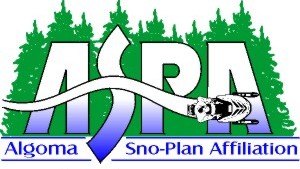Canada Customs Information
Citizens and legal residents of the United States do not need passports or visas to enter Canada as visitors; If you drive accross however, it is a good idea to carry some identification, such as birth, baptismal, voter's or naturalization certificates. If you fly, you require a passport that shows your citizenship just in case you are asked for it when leaving or re-entering the U.S..
The Western Hemisphere Travel Initiative (WHTI) is a program initiated by the US Customs and Border Protection Service, and dictates the type of identification you need to enter the U.S. For more information on the WHTI, and the Drummond Island Ice Bridge Entry Requirements for 2009, please use the following links:
WHTI at a Glance Tear Sheet (PDF)
Ice Bridge 2009 (Word Document)file
Drummond WHTI Notification Tear Sheet
Visitors who enter Canada from a country other than the U.S. require a valid passport and in some instances a visitor's visa. Candaian Immigration offices, embassies, and consulates issue visas. Questions about entry to Canada may be addressed to: Canada Immigration Division, Canada Employment and Immigration Centre, Ottawa, Ontario K1A 0J9.
Currency Exchange
To obtain the best rate of exchange we recommend exchanging currency prior to shopping. U.S. funds can be exchanged at all banks and the Ontario Visitor Centre Currency Exchange on Queen St. All major credit cards are accepted.
What You Can Bring With You
Duty free articles that may be taken into Canada are: wearing apparel and personal effect; sporting goods (up to 200 rounds of ammunition); up to 50 cigars, 200 cigarettes, 400 gms. of tobacco, 40 imperial ounces of alcohol or wine or 288 imperial ounces of beer or ale (case of 24) per adult; cameras (with a reasonable amount of film); reasonable food supply per person, and a full tank of gasoline. Note: all articles above allowable quantities are subject to import duty.
Firearms
Pistols, fully automatic weapons and firearms less than 26 inches in length are prohibited entry into Canada. Exceptions are handguns used by participants in bona fide marksmanship competitions. Most sporting rifles and shotguns can be admitted without a permit if the visitor is sixteen or older. A description of all guns and serial numbers must be submitted to Canadian Customs. 200 rounds of ammunition can be admitted duty free.
U.S. Residents Leaving Canada
After a 48-hour stay in Canada you may return with $400 U.S. worth of goods including:
35 oz Liquor
200 Cigarettes +100 Cigars
Family members may combine their $400 exemptions
Under 48 hours the exemption is $200 U.S.
Vehichles & Driving
Seatbelts are mandatory for everyone and car seats or seat boosters are required for children under 9 or 40lbs.
Radar detectors are illegal in Ontario.
Right turns are permitted ona red light after a complete stop, unless posted otherwise.
Speed limits and distances are posted in kilometres (1 mile = 1.62 km)
Liquid fuels are sold by the litre (1 U.S. gallon = 3.8 litres).
Vehicles and Insurance
The entry of vehicles and trailers into Canada for touring purposes is usually a quick routine
matter. Any necessary permits are issued at the point of entry. If you've rented a vehicle or trailer, make sure you bring along a copy of the rental contract that stipulates you have permission to use it in Canada.
U.S. motorists planning to travel in Canada are advised to obtain a "Canadian Non-Resident Inter-Province Motor Vehicle Liability Insurance Card" available only in the U.S. Contact your
local insurance agent.
Export Rules
Residents from other countries should ask the appropriate authorities of their country of origin or
its nearest consulate for detailed information about duty charged on articles purchased in Canada. Permites are required to export certain products made from endangered plants or animals.
Normally, the retailer can advise you about any export restrictions on merchandise in his/her store.
Can Our Pets Come?
Dogs and cats accompanying their owners from the U.S. must have current (within 36 months) rabies vaccination certificates. Owners from other countries who wish to bring their pets with them should write to: The Health of Animals Branch, Canada Department of Agriculture, SBI Building, 2323 Riverside Drive, Ottawa, Ontario K1A 0Y9.
Hospital & Medical Services
Most communities in Algoma have hospitals and/or resident doctors. Wise travellers will check
with their medical service plans to ensure they will be covered while in Canada. If you are taking medicines prescribed by your doctor you should bring along a copy of the prescription, in case
you need to have it renewed by a physician in Canada. For further information and insurance
details contact your travel agent or insurance agent.
Ontario Provincial Police (OPP)
For Police Services anywhere in Algoma Country, phone toll-free 1-888-310-1122 or for emergencies dial 911.




